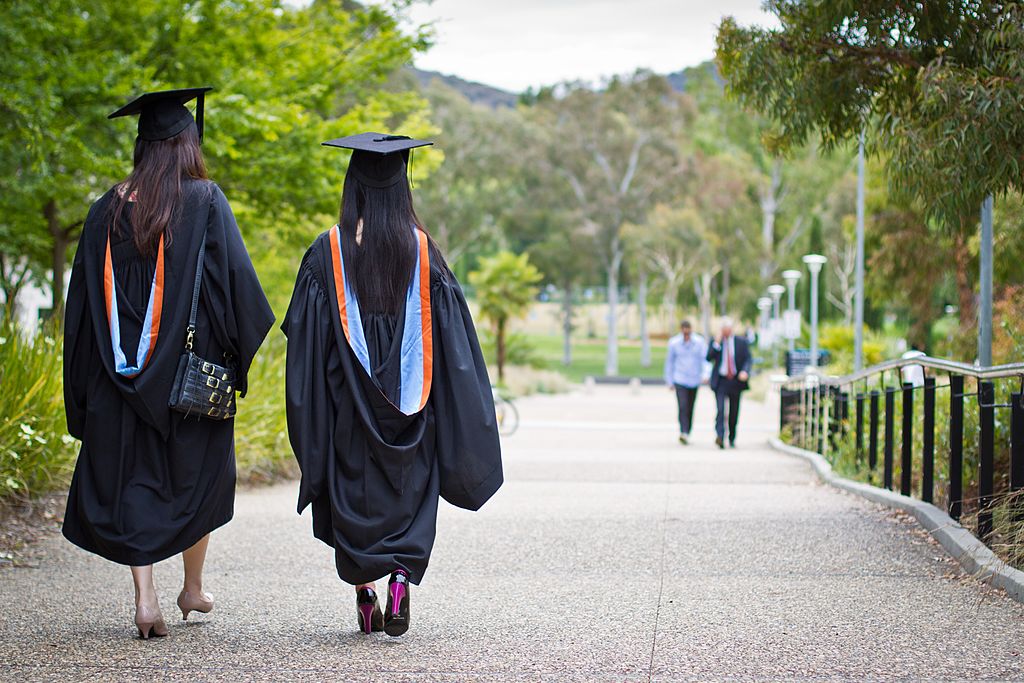
The relationship between Australian universities and China is attracting growing attention and some criticism.
Three questions are being asked: are universities too dependent on the China market, is Chinese influence in Australian universities excessive, and what boundaries should be drawn around research collaboration with China? None of the answers are simple and all require vigilance from universities.
Attracting international students to Australian universities has been a national project for over three decades. It has delivered some impressive results, creating a quarter of a million jobs, generating some $38 billion of economic activity, strengthening our regional relationships and creating a pool of alumni who know Australia well and mostly think highly of us. Many will go on to leadership positions.
Less well understood is that international fees now also subsidise Australian research, which in turn is critical to the high global rankings of our universities.
University leaders have long been aware of the risks of overdependence on the China market. Most have active diversification strategies. At the University of Queensland, we are also working on creating a future fund so that a proportion of international fees can be used on scholarships and strategic investments. Managing the financial risk of overdependence on a single market is high on our list of priorities.
There has been a lot of excited commentary on the influence of China on our campuses. What the recent demonstrations on university campuses over Hong Kong show is that universities remain firmly committed to freedom of expression. Restricting that freedom through intimidation and disruption is unacceptable, as is threatening the families of those who participated.
Confucius Institutes have been cast as a Chinese Trojan horse. One commentator has gone so far as to suggest the vice chancellor of UQ, Peter Hoj, is a stooge of the Chinese Communist Party. Such remarks belong more to the anti-communist witch hunts of the McCarthy era in the US than to the rational debate we need to have in Australia.
Professor Hoj has been utterly transparent about his association with the Confucius Institutes. Indeed, he has used that relationship to advise them of the importance of appointing independent staff and respecting the autonomy of host institutions, including following their human resources regulations and procedures.
Apparently Hoj is guilty of the egregious sin of promoting educational links with China. This same vice chancellor who is accused of being so close to the CCP has been instrumental in promoting the recent signing of a memorandum of understanding with the Ramsay Centre to teach a degree course in Western civilisation at UQ: an initiative that has the full backing of the university senate.
Here are the facts on the Confucius Institute at UQ. Its courses earn no credit towards a degree. It teaches no course on politics in China or Chinese foreign policy. It has worked with the Queensland police force to help educate visiting Chinese about safety at Australian beaches. It does offer courses on Chinese language and culture, and when it was established at UQ in 2009 this was considered a good thing, as was the idea of greater Asia literacy in Australia. In my view they remain worthy objectives.
UQ is a leading research university and our research links with China are substantial and growing. Collaboration is essential to research and innovation. We do, however, recognise that research collaboration should not come at a cost to our national security. That is why we welcome the dialogue which the government has initiated to more clearly define ‘no go’ areas of research with foreign partners and also to deal sensibly with grey zones of research so that we don’t ‘throw the baby out with the bathwater’.
Australia has to come to grips with China’s emergence as a leading economy and a research powerhouse. Our political systems and values are very different. But boycotting China is not a sensible option. What we need is a clear-eyed engagement with China which serves our interests and is faithful to our values. We would do well to make that the touchstone of our approach, whether as a nation or a university.
 Print This Post
Print This Post